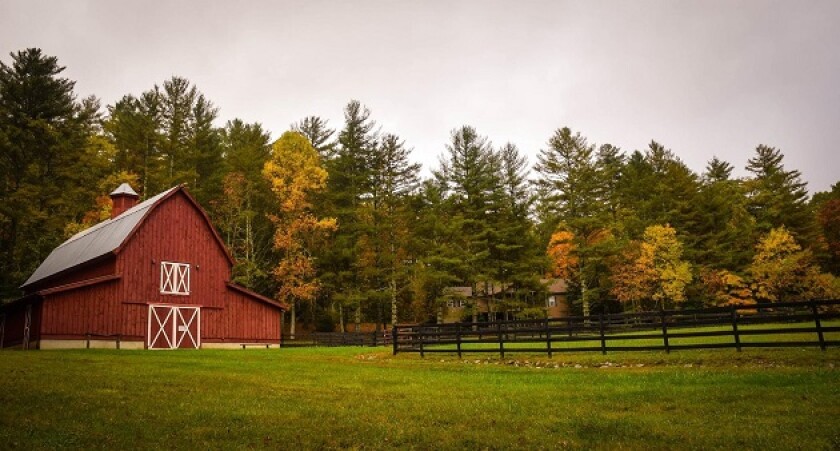This case dealt with the application of the VAT exemption provided for the leasing of immovable property to a so-called business lease (cessão de exploração) of land comprising vineyards for agricultural purposes.
The case resulted from a request for a preliminary ruling in the context of the domestic appeal pending at the Portuguese Supreme Administrative Court (STA) – Appeal No 0210/09 5BEMDL 071/17.
The CJEU analysed whether a business lease agreement granting the right to use land comprising vineyards for agricultural purposes, for a period of one year, automatically renewable, constituted a leasing or letting of immovable property under Article 13B(b) of the Directive 77/388/EEC, May 17 1977 (Sixth Directive). This legal provision corresponds to Article 135 (1) (l) of Directive 2006/112 (VATDirective) and is transposed into Portuguese VAT law through Article 9 (29) of the Portuguese VAT Code (corresponding, at the time the relevant facts, to Article 9 (30) of this Law).
The Court stressed that the concepts underlying the VAT exemptions established in Article 13 of the Sixth Directive (corresponding to Articles 132 et seq of the VAT Directive) constituted independent concepts of EU law. Although these exemptions should be interpreted strictly, the concepts of 'leasing' or 'letting' have a broader scope for VAT purposes when compared with the respective concepts established for civil law purposes under the domestic legislation of the EU member states.
The Court also stressed the ratio of this exemption, which is based on the relatively passive nature of the leasing of immovable property (that is, simply making goods available) not generating any substantial added value. Therefore, the activity is distinguished, on the one hand, from other activities that are expressly excluded from the VAT exemption, from those having a predominant commercial or industrial nature; or, on the other hand, from transactions that, because of the elements forming part thereof, go beyond merely making certain goods available.
Therefore, the Court held that an activity is excluded from the exemption whenever it entails not only making immovable property available, but also when the supply of other elements/services with a commercial nature is provided in full by the lessor, which goes beyond the simply letting or leasing of the property (for example, the owner’s supervision, management and continual maintenance).
According to the Court, whether the exemption will apply to the leasing or letting of immovable properties depends on the elements of the specific transaction, not on how the tenant uses the property (for example, for commercial purposes), which does not, in itself, preclude the VAT exemption from being applied to the lease of real estate.
In the case at hand, the CJEU clarified that rural properties with vineyards whose operation was temporarily transferred to a third party qualified as immovable properties. Therefore, the granting of the right to use them constitutes a leasing or letting of immovable property for VAT purposes. This is because, under the business lease agreement, the transferee/tenant temporarily acquired the right to use the properties by paying rent.
The Court also held that nothing in the judicial proceedings indicated that, in addition to leasing the property, the owner/lessor provided other services or goods to the transferee that could classify as commercial/business activities.
The Court highlighted this to refute the Portuguese government, which argued that the lessor/transferor’s operations involved more than merely making the vineyards available for use, but should instead be understood as a transfer of the totality of the assets and rights connected with the property (for example, legal authorisations for planting vines and transferring the name or insignia of an agricultural establishment). Therefore, according to the Portuguese government, the VAT exemption at stake should not apply to the so-called business lease. However, the Court rejected the Portuguese government’s reasoning.
Based on the CJEU’s case law on composite supplies, the Court held that, even if the use of the properties were supplied together with those elements (mostly intangible), the elements would clearly be ancillary when compared with the use of the properties. Therefore, the use of the properties was clearly the main element of the supply, meaning the single composite supply, as a whole, would have to follow the same VAT treatment applicable to the main element (that is, VAT exemption).
However, in the case at hand, the CJEU noted that the exclusions established in Article 135 (2) of the VAT Directive and transposed into the Portuguese VAT Code should not apply, particularly the exclusion of the letting of permanently installed equipment and machinery, as vineyards cannot be classified as equipment or machinery (CFR Article 9 (29) (c) of the VAT Code).
Consequently, the Court ruled that the so-called business lease of land comprising vineyards for agricultural purposes was exempt from VAT, as it qualifies as a lease or letting of immovable property from a VAT perspective.
Further to the CJEU’s decision, on July 11 2019, the STA gave its judgment on the case, adhering in full to the CJEU’s line of reasoning and findings, and ruling in the taxpayer’s favour.
This decision consolidates the Court’s case law on the VAT exemption applicable to letting immovable property, underlining its nature as an autonomous concept of EU law and reaffirming that the nomen iuris that parties attribute to a given contract is not critical for its VAT treatment.
However, as the Portuguese legislator excluded from the scope of the VAT exemption transactions other than those established in Article 135 (2) of the VAT Directive, as is the case of letting immovable property entailing the business lease of a commercial or industrial establishment/unit (please see Article 9 (29) (c) of the VAT Code), we find it strange that both the Portuguese court and the Portuguese government failed to raise the possibility of excluding the transaction from the scope of the VAT exemption under these domestic rules (that is, the business lease of a commercial or industrial establishment/unit of an agricultural nature). Consequently, the Court was prevented from examining the scope of this exclusion and its application to the case at hand.
In our view, this decision is based on the relative scarcity of other elements allegedly forming part of the so-called business lease agreement when compared with its main component (that is, granting use of the land). From the Court's perspective, these other elements were not sufficient to exclude the operation from the concept of letting of immovable property and, consequently, from the VAT exemption.
Therefore, we consider that the CJEU’s decision would probably be different in typical cases of business leases of agricultural activities, where, for example, the use of rural properties is accompanied by other material and human elements, such as agricultural tools and devices, irrigation systems, right to use a cellar, agricultural workers, and so on.
In fact, it does not seem that the Court has held that only the business lease of commercial and industrial establishments (and not those qualifying as having an agricultural nature) would be covered by the cases excluded from the VAT exemption established in Article 9 (29) (c) of the VAT Code. Besides the fact that nothing in the Court's decision leads to this conclusion, this line of reasoning would lead to an unacceptable interpretative result. First, because the concept of agricultural 'industry' falls within the wording and ratio of this legal provision and, secondly, this approach would create an unjustified discrimination (certainly not permitted under the VAT Directive) between the business lease of an agriculture establishment, which would be VAT exempt, and the business lease of a commercial or industrial establishment, which would be taxed.
Despite the merits of the Court's decision, which enables economic operators to anticipate the VAT treatment of future business lease agreements with greater certainty, this decision also raises questions that may lead to a different conclusion from the one reached in the judgment under appeal. This is particularly so when determining the main element vis-à-vis the mere ancillary components of a single composite supply and its VAT treatment.












